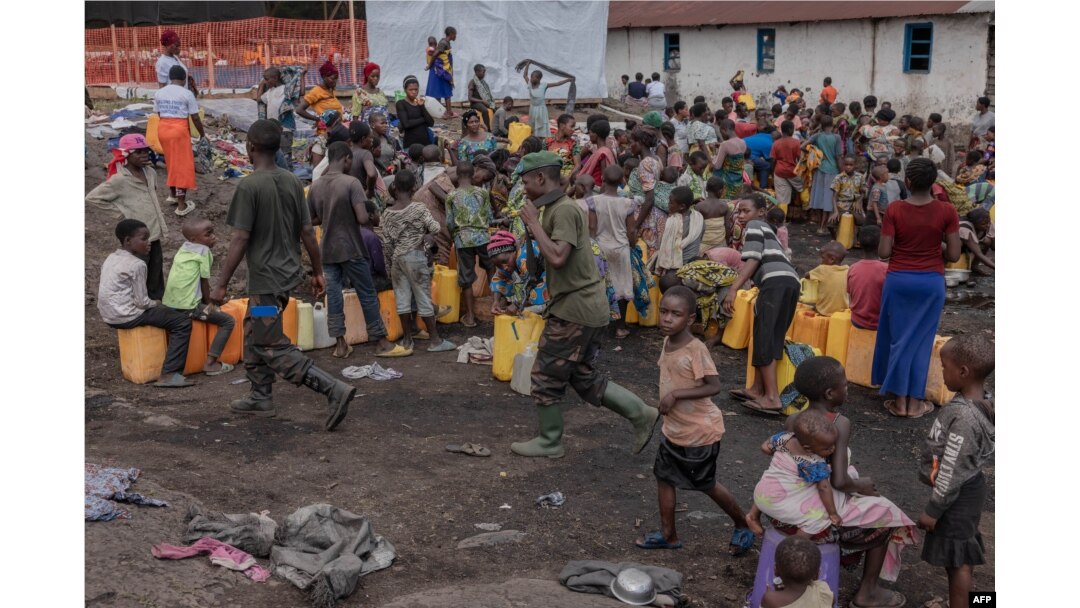Delegates to UN Biodiversity Convention conclude meeting, provide strong scientific basis to support implementation of Kunming-Montreal Global Biodiversity Framework

ENEBEKE CLETUS CHIGOZIE
Delegates from around the world concluded their meetings in Nairobi, agreeing on recommendations that embrace the science behind invasive alien species, plant conservation, the sustainable use of wildlife, biodiversity and climate change and other elements of the technical base that supports the implementation of the ambitious Kunming-Montreal Global Biodiversity Framework and the monitoring of its progress.
This 25th meeting of the Subsidiary Body on Scientific, Technical and Technological Advice (SBSTTA-25) came to a close on Thursday, 19 October 2023, with an agreement to conduct further work that will develop the monitoring framework agreed in decision 15/5 . Governments asked the Ad Hoc Technical Expert Group dealing with the indicators to continue its work and provide results to the 26th meeting of SBSTTA, scheduled for next year.
“I am glad to see all the advancements that we have made so far, particularly at this meeting, where significant progress was made in terms of providing scientific, technical and technological tools to guide Parties on the implementation of the Framework.” Hesiquio Benitez, Chair of SBSTTA-25
“The work of delegates this week has helped ensure that we can move from agreement to action as we implement the Kunming-Montreal Global Biodiversity Framework, agreed on at COP 15. We have more work to do before and during COP 16 and SBSTTA-26, including to ensure the robust monitoring of progress at global and national levels.” David Cooper, Acting Executive Secretary of the Secretariat of the Convention on Biological Diversity.
The work of the Intergovernmental Science-Policy Platform on Biodiversity and Ecosystem Services (IPBES), such as assessments on Invasive Alien Species, the multiple values of Biodiversity, and Sustainable Wildlife Management, and the report of the Intergovernmental Panel on Climate Change (IPCC) were also discussed, including their implications for the work under the Convention.
Monitoring Framework
At COP 15, Parties to the Convention recognized the importance of monitoring and improving national monitoring systems in order to inform biodiversity planning and implementation. Governments considered issues related to how monitoring would work in practice as well as next steps to ensure high quality, robust data and information are available for all countries.
Scientific, Technical and Technological inputs to inform the Global Review of the collective progress
A global review of collective progress in the implementation of the Kunming-Montreal Global Biodiversity Framework will be conducted at COP 17. Governments considered the scientific and technical inputs that would be necessary to inform a global report on collective progress.
Plant Conservation
Governments looked at the lessons learned from the Global Strategy for Plant Conservation implemented over the last decade, and recommended the use of a set of voluntary complementary actions related to plant conservation that complements almost all targets of the new Framework.
Invasive Alien Species (IAS):
Governments welcomed the Thematic Assessment Report on Invasive Alien Species and their Control: Summary for Policymakers and its key messages by IPBES and noted the relevance of the findings of the assessment for the implementation of the Kunming-Montreal Global Biodiversity Framework. Parties also endorsed elements of voluntary guidance based on the work of the Ad Hoc Technical Expert Group on Invasive Alien Species and a peer-review process to support the implementation of the Framework, in particular Target 6.
Sustainable Wildlife Management
Governments requested the Secretariat to undertake further analysis on issues related to sustainable wildlife management, including a gap analysis to identify areas that are not adequately covered by existing guidance, taking into consideration the seven key elements of effective policy for the sustainable use of wild species identified in the IPBES Assessment Report on the Sustainable Use of Wild Species. The work with the Collaborative Partnership on Sustainable Wildlife Management was also highlighted.
Identifying scientific and technical needs to support the implementation of the Framework
Governments asked the Secretariat to undertake a comprehensive review and analysis of existing tools and guidance that can support the implementation of the goals and targets of the Framework, soliciting views and information from Parties, other Governments, indigenous peoples and local communities, and women and youth, the secretariats of other multilateral environmental agreements, relevant intergovernmental bodies and organizations and relevant stakeholders, including by using the Clearing-House Mechanism.
Biodiversity and Climate Change
Governments welcomed the Sixth Assessment Report of the Intergovernmental Panel on Climate Change and expressed alarm about the accelerating negative impact of climate change on biodiversity. As consequences, the capacity of nature to provide its contributions to people including for climate change resilience, adaptation, mitigation and disaster risk reduction are being seriously undermined. The impact on the most vulnerable, including indigenous peoples and local communities, women, and youth, as well as on ecosystems was strongly highlighted. The importance of enhancing collaboration between the CBD and the UNFCCC was highlighted to raise awareness on relevant interlinkages between biodiversity and climate change.
The recommendations prepared by SBSTTA-25 at this Nairobi meeting will be sent for agreement at COP 16, scheduled to be held in 2024.













